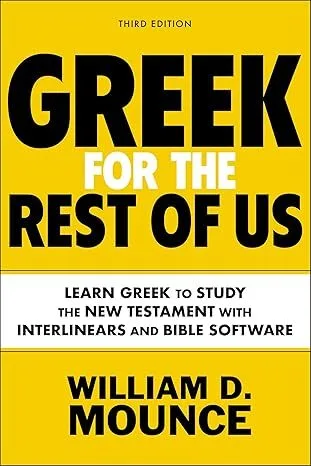Strong’s G5023: A demonstrative pronoun meaning “these things,” used extensively in the New Testament to connect and emphasize important spiritual truths, teachings, and events. It serves as a crucial linking word that helps establish the flow of biblical narrative and doctrine.
U- Unveiling the Word

Key Information
ταῦτα

Strong’s Entry
g5023
Ταῦτα serves as a vital connective tissue in New Testament discourse, bridging important concepts and emphasizing key teachings. This demonstrative pronoun does more than simply point to previously mentioned items – it often signals the theological significance of what has been discussed or what is about to be revealed. In the Gospels, it frequently introduces or concludes Jesus’ teachings, while in the epistles, it connects doctrinal truths with practical application. The early church recognized its importance in establishing logical flow and emphasis in biblical interpretation. Today, understanding ταῦτα helps us recognize the interconnectedness of biblical truth and the emphasis the Holy Spirit places on certain teachings.
N – Necessary Information
- Greek Word: ταῦτα, tauta, /TAU-tah/
- Detailed Pronunciation: TAU (as in “tower”) – tah (as in “father”)
- Part of Speech: Demonstrative Pronoun
Etymology:
- Neuter plural form of οὗτος (houtos)
- From Proto-Indo-European *so-, *to- (demonstrative stem)
- Related to Sanskrit ‘tad’ meaning “that”
D – Defining Meanings
- These things
- These matters
- Such things
- The aforementioned items
For compound words: Not applicable as this is a simple pronoun
Translation Options:
- These things – Most literal and common translation
- All this – Captures collective reference
- Such matters – Emphasizes topical connection
E – Exploring Similar Words
- τοῦτο (touto) /TOO-toh/ – Singular form meaning “this”
See G5124 - ἐκεῖνα (ekeina) /ek-EI-nah/ – Those things (distant reference)
See G1565 - αὐτά (auta) /ow-TAH/ – They, them (personal pronoun)
See G846
R – Reviewing the Word’s Morphology
As a demonstrative pronoun, ταῦτα shows these features:
- Case: Nominative/Accusative
- Number: Plural
- Gender: Neuter
- Declension: Demonstrative
The word remains unchanged in nominative and accusative cases but can function as either subject or object. Its neuter plural form allows it to refer to multiple concepts or statements collectively.
S – Studying Lexicon Insights
Lexical sources provide comprehensive insight into ταῦτα’s usage patterns. BDAG emphasizes its role in discourse organization and reference. Thayer’s notes its function in both anaphoric (looking back) and cataphoric (looking forward) references. LSJ documents its classical usage in connecting arguments and emphasizing conclusions. Vine’s highlights its importance in biblical discourse structure. Strong’s emphasizes its demonstrative force. Moulton and Milligan show its common usage in connecting ideas in everyday Koine Greek. LEH notes its frequent use in the Septuagint for emphasizing divine pronouncements and connecting prophetic statements.
T – Tracing the Scriptures
First appearance:
Matthew 1:20: “But after he had considered these things, an angel of the Lord appeared to him in a dream”
Additional References:
John 5:34, Acts 5:5, Romans 8:31, 1 Corinthians 4:6, Revelation 22:8
A – Analyzing Classical Usage
| Author: Work | Text |
|---|---|
| Plato: Republic | “When he had said these things, we all agreed” |
| Xenophon: Memorabilia | “After these matters were settled, they proceeded” |
| Thucydides: History | “Having arranged these things, they sailed away” |
N – Noteworthy Summary
Ταῦτα serves as a crucial connector in biblical narrative and teaching, helping readers understand the relationship between various truths and their significance. Its frequent use in presenting the Messiah’s teachings and apostolic doctrine highlights the interconnected nature of divine truth. This word reminds us that the good news of King Jesus isn’t a collection of isolated facts but a beautifully connected tapestry of truth that reveals God’s perfect plan of redemption.
D – Did You Know?
- It appears over 200 times in the New Testament
- Often signals important transitions in Jesus’ teachings
- Frequently used to connect doctrine with practical application in epistles
Strong’s G5023: A demonstrative pronoun meaning “these things,” used extensively in the New Testament to connect and emphasize important spiritual truths, teachings, and events. It serves as a crucial linking word that helps establish the flow of biblical narrative and doctrine.
Part of speech: Demonstrative Pronoun
Tags: grammar, connection, reference, teaching, doctrine, emphasis, discourse, narrative, biblical-interpretation, context, logic
Note: While this entry strives for accuracy, readers engaged in critical research should verify citations and keyword occurrences in their Bible translation of choice. For Biblical citations, the F.O.G Bible project recommends Logos Bible software.
Strong's g5023




